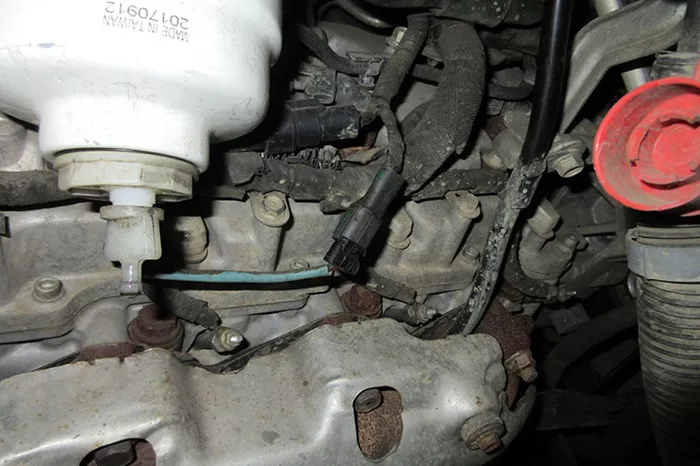Diesel engines are widely used in various applications, from transportation to agriculture and industrial machinery. However, one of the significant challenges faced by diesel engine operators is water contamination in fuel. Water can lead to serious engine issues, including corrosion, reduced efficiency, and even complete engine failure. To combat this problem, diesel fuel water separators play a crucial role. This article delves into the mechanics of how these separators work, their importance, and maintenance practices to ensure optimal performance.
What is a Diesel Fuel Water Separator?
A diesel fuel water separator is a specialized filtering device designed to remove water and other contaminants from diesel fuel before it reaches the engine. Water can enter the fuel system through various means, including condensation within the tank, improper storage practices, or during fuel delivery. If left unchecked, this water can cause significant damage to engine components, leading to costly repairs and downtime.
How Does a Diesel Fuel Water Separator Work?
The operation of a diesel fuel water separator involves several key processes that ensure effective separation of water from fuel. Here’s a breakdown of how these systems function:
Fuel Entry: As diesel fuel enters the separator, it first passes through a filter media designed to capture larger particles and debris. This initial filtration step is crucial for preventing contaminants from reaching sensitive engine components.
Gravity Separation: The separator utilizes gravity to separate water from fuel. Since water is denser than diesel fuel, it naturally sinks to the bottom of the separator while the lighter fuel rises to the top. This process is fundamental in ensuring that only clean fuel moves forward towards the engine.
Coalescing Element: Inside the separator, there is typically a coalescing element made of specialized materials that promote the aggregation of small water droplets into larger ones. As these droplets combine, they become heavy enough to fall into a designated collection chamber at the bottom of the unit.
Water Collection: The collected water accumulates in a separate chamber or bowl at the bottom of the separator. This chamber is designed for easy drainage, allowing operators to remove unwanted water without disassembling the entire system.
Clean Fuel Passage: After passing through the coalescing element and separating out any free water, the now-clean diesel fuel continues through additional filtration stages before it reaches the engine. This ensures that only high-quality fuel enters the combustion chamber.
Maintenance Alerts: Many modern separators are equipped with visual indicators or sensors that alert operators when water levels are high and need to be drained. Regular monitoring is essential for maintaining system efficiency.
Importance of Diesel Fuel Water Separators
The significance of diesel fuel water separators cannot be overstated. Here are several reasons why they are essential for diesel engines:
Prevention of Corrosion: Water in diesel fuel can lead to rust and corrosion within engine components. By effectively removing this moisture, separators help prolong engine life.
Enhanced Fuel Efficiency: Clean fuel burns more efficiently than contaminated fuel. By ensuring that only filtered diesel reaches the engine, separators contribute to better fuel economy.
Reduced Downtime: Engine problems caused by water contamination can lead to significant downtime for repairs. Regular use of a diesel fuel water separator minimizes these risks and keeps machinery operational.
Improved Engine Performance: With cleaner fuel entering the combustion chamber, engines perform better overall. This translates into smoother operation and reduced emissions.
Cold Weather Reliability: In colder climates, water in diesel can freeze and block fuel lines. A separator helps mitigate this risk by removing excess moisture before it can cause freezing issues.
Types of Diesel Fuel Water Separators
There are various types of diesel fuel water separators available on the market, each suited for different applications:
Spin-On Separators: These are easy to install and replace, making them popular for light-duty applications like trucks and boats.
Bowl-Type Separators: These units feature a transparent bowl that allows operators to visually inspect water levels and drain as needed.
Multi-Stage Separators: Designed for heavy-duty applications, these separators provide multiple filtration stages for enhanced protection against contaminants.
Marine Separators: Specifically designed for marine environments, these units often include additional features to handle unique challenges faced at sea.
Maintenance Practices for Diesel Fuel Water Separators
To ensure optimal performance from your diesel fuel water separator, regular maintenance is essential:
Routine Inspections: Check the separator regularly for signs of wear or damage. Look for leaks around seals or connections that could allow contaminants to bypass filtration.
Drain Collected Water: Depending on usage and environmental conditions, drain accumulated water from the collection bowl weekly or as needed. Always follow proper disposal protocols for hazardous materials.
Replace Filter Elements: Most separators have replaceable filter elements that should be changed according to manufacturer recommendations—typically every 300-400 hours of use or annually.
Monitor Fuel Quality: Keep an eye on your diesel quality; if you notice changes in performance or increased contamination levels, consider testing your fuel source for impurities.
Check Seals and Gaskets: Inspect seals and gaskets regularly for signs of wear or damage that could lead to leaks or contamination ingress.
Follow Manufacturer Guidelines: Always adhere to specific maintenance recommendations provided by your separator’s manufacturer for best results.
Conclusion
In conclusion, diesel fuel water separators are vital components in maintaining engine health and performance in diesel-powered machinery and vehicles. By effectively removing harmful water and contaminants from diesel fuel, these devices help prevent corrosion, enhance efficiency, and reduce downtime due to repairs caused by contaminated fuel systems. Regular maintenance practices are crucial in ensuring that these separators function optimally over time.
By understanding how a diesel fuel water separator works and implementing proper maintenance routines, operators can significantly extend their equipment’s lifespan while ensuring reliable performance under various operating conditions.
Related topic:
Will Alcohol Remove Water from Diesel Fuel? [Revealed]

